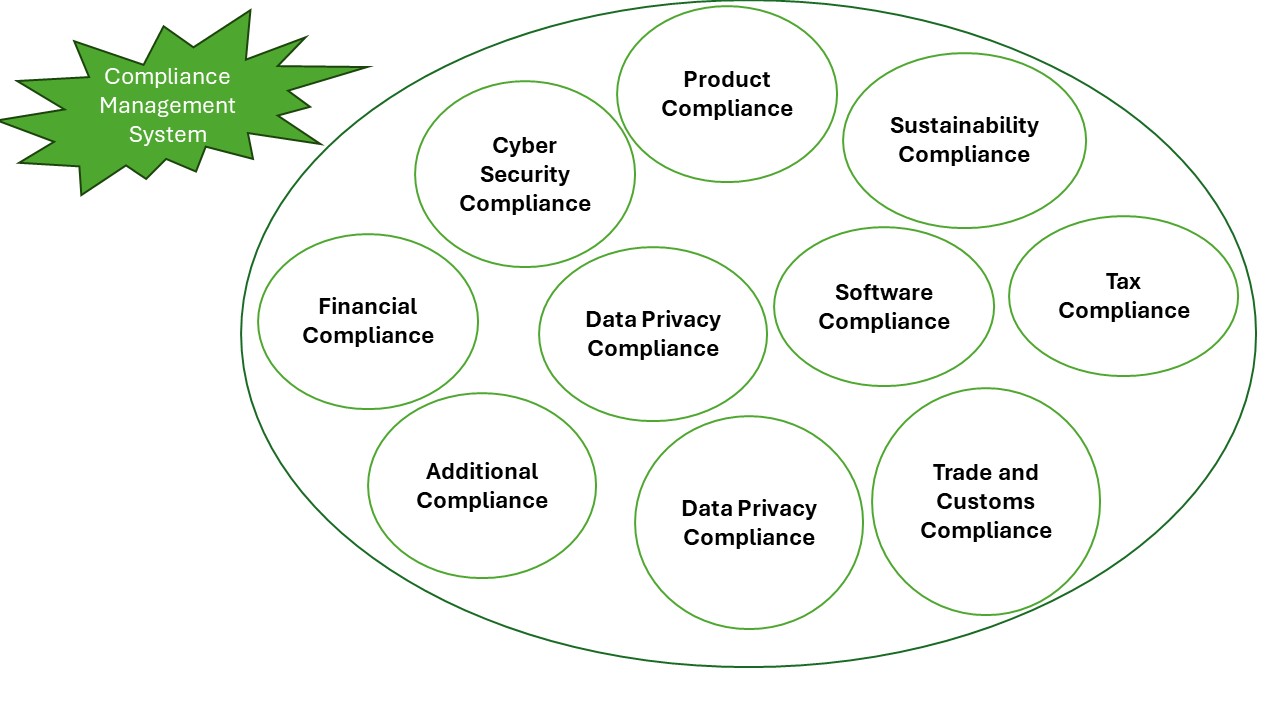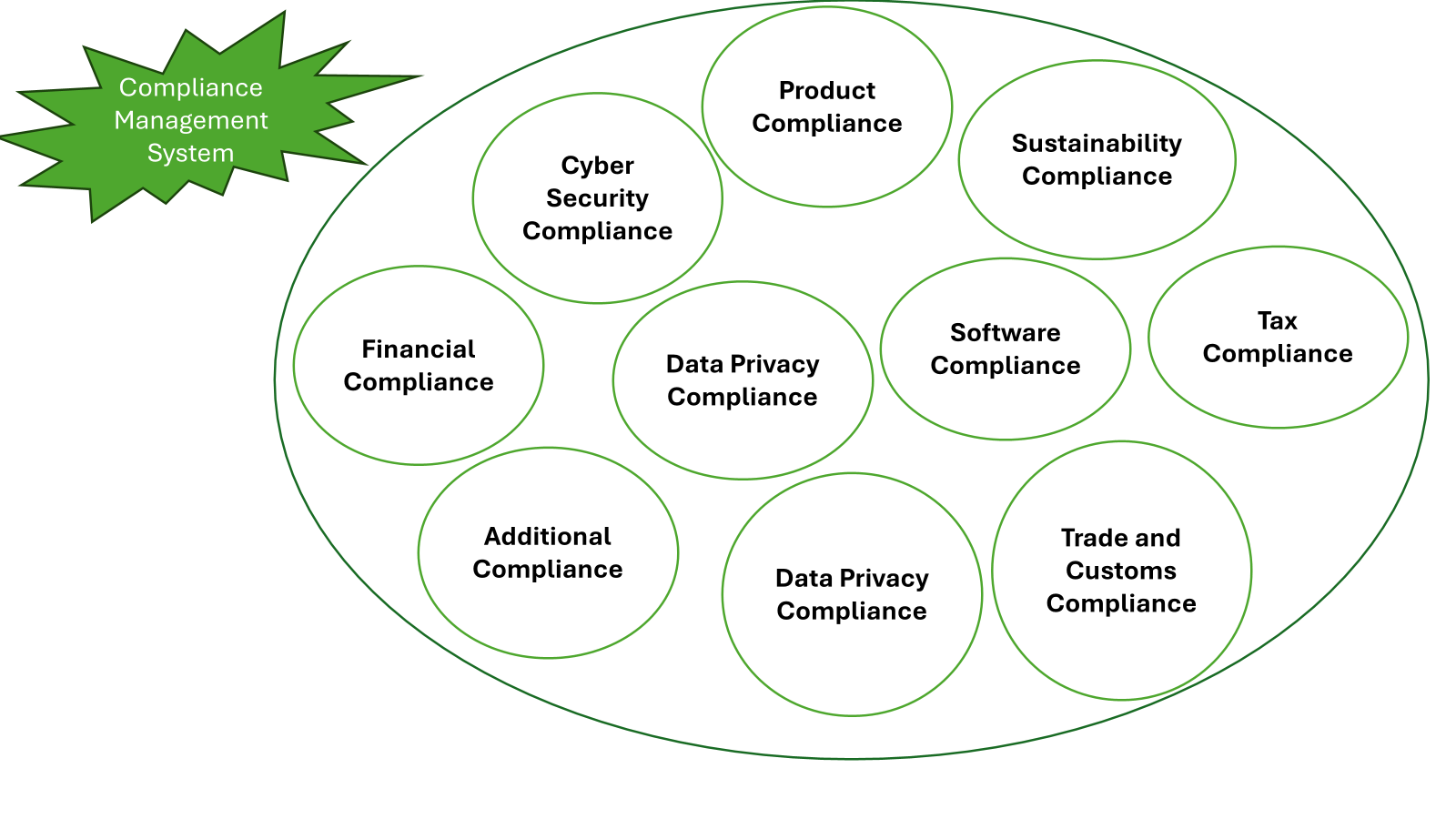
V každé společnosti drží nejvyšší management významnou odpovědnost týkající se dodržování zákonů a požadavků na dodržování předpisů. Nedodržení může vést k závažným důsledkům, včetně soudních sporů, pokut nebo dokonce uvěznění. Proto je pro vůdce zásadní podniknout proaktivní kroky, aby se těmto rizikům vyhnuli. Jednou z efektivních strategie je vybudovat robustní systém řízení shody v rámci společnosti. Tento blog vás provede základy řízení dodržování předpisů a jak zmírnit závazky jako vůdce.
Důležitost systému řízení dodržování předpisů
Systém řízení shody je strukturovaný přístup k zajištění toho, aby společnost dodržovala právní a regulační požadavky. Implementace takového systému je nezbytná z několika důvodů:
- Právní ochrana : Dobře navržený systém řízení dodržování předpisů poskytuje silnou obranu v právních případech a potenciálně chrání společnost a její zaměstnance před soudními sponami a pokutami.
- Provozní účinnost : Jasně definováním procesů dodržování předpisů pomáhá systém zefektivnit operace a snižovat riziko porušení a zvýšit celkovou účinnost.
- Řízení reputace : Dodržování standardů dodržování předpisů pomáhá udržovat pověst společnosti, což je rozhodující pro důvěru zákazníků a udržitelnost podnikání.
ISO 37301: Standard pro správu shody
Jedním z nejuznávanějších standardů pro správu dodržování předpisů je ISO 37301. Tento standard poskytuje komplexní rámec pro vývoj, implementaci, udržování a zlepšování efektivního systému řízení shody. Přijetí ISO 37301 pomáhá zajistit, aby systém splňoval mezinárodní osvědčené postupy a poskytl další vrstvu důvěryhodnosti a jistoty.
Převod odpovědnosti: Úloha úředníka dodržování předpisů
Zatímco Top Management je držitelem konečné odpovědnosti za dodržování předpisů, může být závazek účinně spravován delegováním konkrétních povinností na kvalifikovaného úředníka pro dodržování předpisů. Takto to funguje:
- Najímání důstojníka dodržování předpisů : Jmenujte kvalifikovaného jednotlivce s nezbytnou odborností, aby dohlížel na dodržování předpisů. Tato osoba bude odpovědná za správu systému dodržování předpisů a zajištění dodržování všech relevantních zákonů a předpisů.
- Poskytování zdrojů : Vedení musí zajistit, aby úředník pro dodržování předpisů měl potřebné zdroje, včetně rozpočtu a pracovní síly, aby své povinnosti efektivně plnil.
- Due Diligence : Implementujte robustní proces due diligence jako součást systému správy shody. Tento proces pomáhá identifikovat a zmírňovat rizika dříve, než se eskalují do významných otázek.
Delegováním těchto povinností může vrchní vedení převést část své odpovědnosti na úředníka dodržování předpisů. Je však důležité si uvědomit, že management si stále zachovává povinnost přiměřeně podporovat a vyrábět funkci dodržování předpisů.
Klíčové oblasti řízení dodržování předpisů
Komplexní systém řízení dodržování předpisů by měl pokrýt různá odvětví v rámci společnosti, včetně:
- Soulad s produktem : Zajištění, aby výrobky splňovaly všechny regulační standardy pro materiály a dopad na životní prostředí. Dodržování materiálu a dodržování životního prostředí je obvykle součástí dodržování produktu.
- Dodržování udržitelnosti : Dodržování zákonů a předpisů souvisejících s udržitelností, náležitou kontrolou dodavatelského řetězce a společenské odpovědnosti.
- Dodržování kybernetické bezpečnosti : Ochrana společnosti před kybernetickými hrozbami a zajištění zabezpečení dat.
- Daňové dodržování : Splnění všech daňových povinností a předpisů.
- Finanční dodržování předpisů : Dodržování finančních předpisů a standardů.
- HR a dodržování pracovního práva : Zajištění dodržování zákonů o zaměstnání a předpisy o pracovní síle.
- To dodržování : Správa IT systémů a procesů pro splnění regulačních požadavků.
- Soulad s ochranou osobních údajů : Ochrana osobních údajů a dodržování zákonů o ochraně osobních údajů.
- Obchod a dodržování celních : Zajištění, aby mezinárodní obchodní praktiky splňovaly všechny zákonné požadavky.
- Další kategorie shody založené na firemní struktuře.

Implementace systému správy shody není jen o vyhýbání se závazkům; Jde o podporu kultury integrity a odpovědnosti ve vaší společnosti. Přijetím těchto kroků můžete zajistit, aby vaše firma působila v rámci zákona a chránila vaše aktiva i pověst.
Partner s ContemplyMarket
Ve společnosti ComplyMarket se specializujeme na pomoc společnostem budovat a udržovat efektivní systémy řízení dodržování předpisů podle ISO 37301. Naše odbornost vám může pomoci vyhnout se pokutám, právním problémům a dokonce uvězněním zajištěním, že vaše společnost splňuje všechny požadavky na dodržování předpisů. Pomůžeme vám zajistit vaše podnikání a dosáhnout klidu mysli.
Sdílejte s vaší komunitou
Komentáře
Zanechte komentář nebo položte otázku





any updates
very interesting